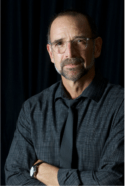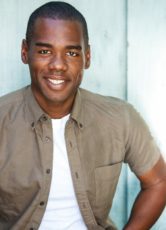
If you were given the instruction manual for a new product but the manual was meant for a different product, do you think you’d have much success properly operating that product?
Not likely.
Holding a script that you haven’t correctly analyzed is like holding the wrong instruction manual or trying to navigate with the wrong map.
Imagine being handed a script for one scene in an audition but after reading it you deliver a read that’s different from the scene as it’s written. You wouldn’t purposely do that, but it happens all the time. Right now, there are actors all over the world misreading their copy, blowing their reads and as their chances of winning their auditions.
Here’s how to prevent this chronic actor ailment.
Writer’s Intent: The Blueprint
Let’s cut to the core of script analysis to get you the tools for understanding copy as the writer had intended it. We call this “writer’s intent” or “given set of circumstances.”
Writer’s intent is similar to the blueprint for a building project. If you don’t follow the blueprint during construction, the result won’t be what the designer envisioned. When telling a story on film, it’s the writer’s job to provide the roadmap or blueprint. It’s the actor’s job to stick to that blueprint, assuming you intend to bring the story to life according to the writer’s original vision.
Actors are always looking for ways to make strong and interesting choices to stand out. Making interesting choices is not a bad thing. However, it’s important to remember that interesting choices can’t conflict with the given circumstances and must line up with the story’s original intent. If these choices stray too far, they will prevent you from getting called back.
Remember: It’s not the job of the actor to change the blueprint, even if you think you’ve come up with something better. You must first understand what’s on the page before you can nuance it.
Audition Tip: Don’t Be a Critic
Never criticize or insult the writing during an audition (the writer could be in the room).
If you feel the writing is subpar and you’re still willing to audition for the project, then prepare something nice to say about the script ahead of time, such as “I’m excited to be working on this material right now.”
I often remind actors in my studio to consider the writer as the smartest person on the project.
More often than not, writers have worked hard and labored long hours over word choice, syntax, grammar and placement of punctuations. It’s out of this general respect for all the hard work committed that the actor should seek to honor the writer’s intent.
If you feel judgmental over the quality of the writing, you’re building up obstacles that can prevent you from analyzing the script and digging out all the nuggets.
Sometimes just believing that the writer is the smartest person on the project will open your eyes to things in the script that you hadn’t seen before. When that happens, you’ll end up elevating the writing through your performance. Just as bringing the character to life is your performance art, the writer’s art are the words on the page.
Script Analysis
Now that we’ve established that the script is the blueprint for an actor’s performance, let’s try reading this blueprint. In other words, we know that it’s the job of the actor to understand the writer’s intent, but how do we know what the intent is?
The process of figuring out a writer’s intent is called script analysis.
As actors, we need to be able to read a script and understand its ins and outs, its literal and suggested content, its text, subtext and detail. It’s our job as actors to decipher and relay to the audience what the writer wants to communicate through the story.
This is a tall order. For some actors, decoding and analyzing the story is intimidating. If this applies to you, don’t worry. We’ll take it step by step to help you become a better interpreter of copy, script and story. As a result, you’ll become a better actor.
Analysis Begins With Story
Any actor who’s studied with me knows that I reinforce that everything has always been and will be about story. Think about how we communicate in everyday life. “What’s your story?” “Would you like to hear a story?” “What’s the latest news story?” “Let me tell you what happened.” “Look at this picture.” “Check me out on Facebook and Instagram.” “Look at all of my photos, videos, blogs, and status updates.” It’s all story!
That’s how we’ve been constructed. We’re built to respond to story. Keeping this in mind, can you see how having a better understanding of story will empower you in your ability as an actor to tell stories? It should.
Let’s talk story.
There’s a general agreement amongst writers that there are a small handful of basic plot structures that always get reinvented. Some believe that there are only seven basic stories, others say it’s 12. Director Ron Howard states that there might only be one. Regardless of the number you come to, the bottom line is that there aren’t that many.
As an actor, it would greatly benefit you to learn these stories and become proficient at recognizing their patterns and identifying their structures. Doing so will help you with script analysis.
If you’re serious about diving deeper into this topic, read Damien Walter’s post titled Two. Four. Seven. More. How Many Stories Are There? Walter also provides resources for the monomyth theory (the argument that there may only be one type of story).
The more you dive into the research, the more you’ll find there is contention over the number of different stories there may be. Knowing the number doesn’t matter. Being educated in story structure is what matters. Take some time, do the research and learn the difference between a story that’s about overcoming a monster and a story about a journey. Having this knowledge will benefit you as you journey through the analysis of scripts.
There’s more to understanding story for effective auditioning. For now, the first step is to raise your awareness of script analysis and the writer’s intent. Don’t miss this because you want to focus on memorizing your lines.
Develop proper cold reading skills you can count on. Spend the little time you have before your audition on the understanding of the scene story as well as the character’s story. Doing so will take you much further than giving a memorized read. Take your time, put in the work and you won’t be that actor who doesn’t know what they’re talking about.
 Clay Banks is a former Fortune 500 Business & Life Empowerment Coach, a Motivational Speaker and Consultant. After a successful eighteen year acting career, he founded Clay Banks Productions & Studio International (CBSI) where he’s the Head Coach offering ongoing on-camera acting classes. He’s presently a recurring Master Coach at SAG-AFTRA Headquarters as well as a regular-guest Master Class Auditioning Coach with the American Academy of Dramatic Arts, Hollywood.
Clay Banks is a former Fortune 500 Business & Life Empowerment Coach, a Motivational Speaker and Consultant. After a successful eighteen year acting career, he founded Clay Banks Productions & Studio International (CBSI) where he’s the Head Coach offering ongoing on-camera acting classes. He’s presently a recurring Master Coach at SAG-AFTRA Headquarters as well as a regular-guest Master Class Auditioning Coach with the American Academy of Dramatic Arts, Hollywood.
Want to get your acting career started? Sign up or login to Casting Frontier and start auditioning today!
You may also like:
- How Meditation Can Help Your Acting Career
- A Complete Guide to On Set Do’s and Don’ts
- Oscar-Winning Actors Thank Their Mothers for Their Unconditional Love
Written by Clay Banks




